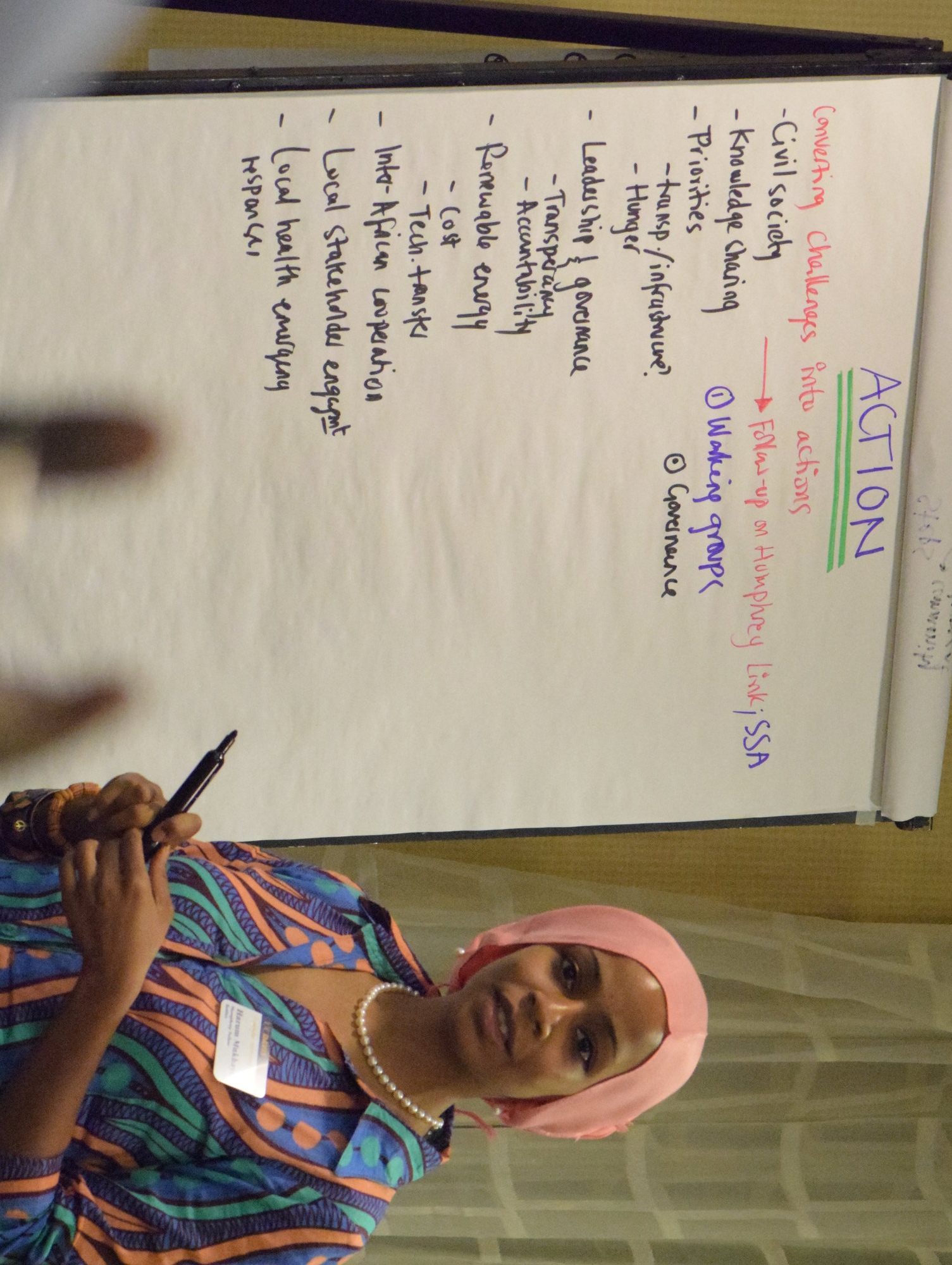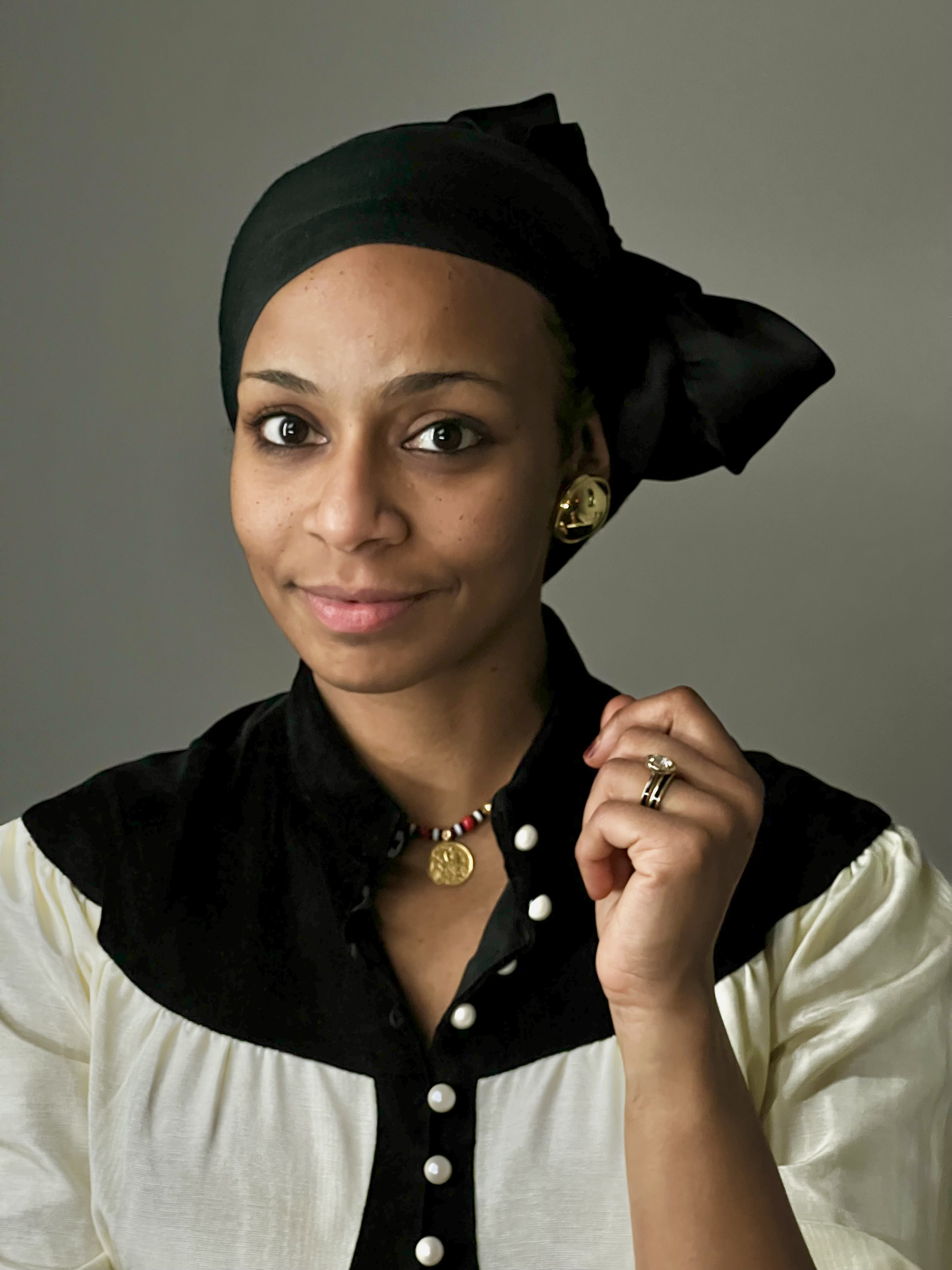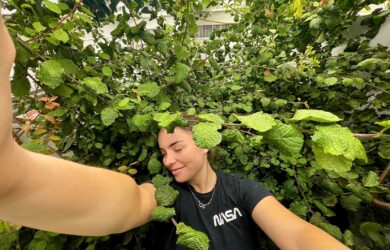
Harum Mukhayer on what motivated her research into the law in disputed border regions.
International law needs to be revised in areas where state interests run counter to those whose presence, customary law and traditional authority predates that of the state.
Harum Mukhayer
Harum Mukhayer [2016] has spent the last eight years as a specialist in international environmental and natural resources law. She has advised governments in Sudan, South Sudan and Somalia on the design and implementation of natural resources laws and policies that better serve the poor.
She now wants to explore the wider issues raised further and her PhD in Law at Cambridge will focus on how the nature of customary law and legal systems in border dispute areas is fundamentally different. In doing that she is also drawing on experience gained in California where she was a Fulbright Fellow and learnt about Native American Indigenous Ecological Law and interacted with the Winnemem Wintu and Pit River tribes.
Her PhD will cover traditional rights under international law, raising questions about territorial and sovereignty issues in disputed areas, such as the Abyei Border Area in Sudan or the situation in Western Sahara, where people have coexisted and formed their own customs in the presence of artificial borders. She asks: “Where borders are disputed, can we really rely upon states to safeguard the interests of people who live on the margins? And who is responsible in these cases? It is not okay that the basis for sovereignty in such cases is artificial borders or that international law gives primacy to states. International law needs to be revised in such areas where state interests run counter to those whose presence, customary law and traditional authority predates that of the state.”
Harum’s PhD builds on both her preceding academic research and her experience of dealing with these issues on the ground. For her LLM dissertation, for instance, she designed a framework that adapts local customary law in a way that helps governments implement their obligations under multilateral environmental agreements (MEAs) they have ratified. As a result of her LLM, she was invited by the UN Joint Programme on Local Governance (UNJPLG) to adapt her natural resources law framework to Somaliland and Puntland State of Somalia. And later on led the preparation of the Somali National Action Programme with the Somali government while working with the UNEP/UNDP Somalia.
Her role involved coordinating meetings with ministers and members of parliament, including consultations with village elders. As a young Muslim woman, in a very male-dominated environment, this presented challenges which Harum was able to overcome. She had to adapt how she operated; including how she dressed. For Harum, this ran counter to her nature as someone who challenges stereotypes and the perceptions of Muslim women in society.
In her work in Somalia, she adopted an innovative approach to match international law principles with local customs in order to find a middle ground based on state law. She drew on her own roots, tracing her paternal descent from a camel-herding tribe in Northern Darfur to connect with the Somali pastoralist heritage. She also facilitated sessions that raised questions about personal responsibility in local custom and the connection people hold to the land.
Harum describes herself as “an international civil servant, a global nomad and a policy activist”. She believes that even the worst of governments can adopt good laws and policies. This underpins her commitment to working with governments that don’t always have the best global reputation. “I reject any notion that holds political instability or state fragility as an excuse for not securing human rights for those living at the margins,” she says.
Childhood and early studies
Though her family is from Sudan, Harum was born in Dubai where her father was working as a forensic scientist. In 1995, when she was seven, her family moved to Scotland so that her mother could do an LLM and the family could be near her older brother who was doing a biochemistry degree at the University of Dundee. Coming from an academic family, education was always a priority. Harum's parents were very positive about her creative writing and her father would encourage her to recite her poems and share them with the extended family.
At the age of 15, Harum enthusiastically set “career objectives” for herself, determined to live up to the expectations her father had for her. In her first year of undergraduate studies at Ahfad University in Khartoum she volunteered with the Community Animators Friendly Association (CAFA) which administered adult literacy courses to train in adult education, and attended workshops on community development issues such as reproductive health. In her second year she interned with the UN Population Fund (UNFPA) and made links with people working for the UN Development Programme (UNDP). In her third summer she worked for the UNDP Headquarters in Khartoum where she was offered the chance to work on development programming and post conflict work in the Trust Fund Management Unit (TFMU).
In 2005/2006 Harum decided to take a gap year, a decision that set her on the path to Cambridge. During her gap year she worked as an Administrative and Programme Assistant with the TFMU at the UNDP. This experience gave her confidence in her administrative skills and helped her make the decision to specialise in international development. But what made this a critical year in her life was the people she worked with in the TFMU, particularly Paul Crook, who was the TFMU manager and a development guru with 15 years of international development experience in the region.
Crook quickly identified Harum's potential and became (and continues to be) a key mentor. Crook would give her assignments to complete and textbooks to read, connecting the theory of what she learned in University with the world of international and humanitarian development. “He made me think about my CV and asked me if I had a three- to five-year Career Plan. I was only 17 – of course I didn’t have a five-year career plan, but he helped me be more strategic about what I wanted to do with my career,” says Harum.
At the end of her gap year Harum resumed her studies at Ahfad University. Then came another pivot. In her fourth year Harum did field work in the Nuba mountains in Sudan and became more interested in environmental issues and their role in community development. She began volunteering for a web-based corporate responsibility organisation and in her fifth year she did a research project assessing the social and environmental impact of civil society organisations in Sudan and South Sudan and their effectiveness and sustainability.
Development and the environment
After graduating in 2008 she took up a research assistant post working on fuel-efficient stoves as part of the Darfur timber and energy project. It was mainly a desk-based job in Khartoum, working on projects in Darfur and South Sudan. In early 2009 Harum moved to UNEP’s Juba office to coordinate the Keep Juba Clean and Green campaign and take on the management of the South Sudan Forests Project (SSF). Her role involved meeting government officials and coordinating meetings, designing posters and a radio campaign and project management. That experience taught her the power of good ideas even in the face of dubious politics. “I decided that I wanted to influence those ideas, how laws were formed and policies designed,” she says. In 2010 she negotiated a flexible contract with UNEP so that she could continue leading the work she started in South Sudan and also do an LLM in Natural Resources Law and Policy,at the Centre for Energy Petroleum Mineral Law and Policy (CEPMLP) at the University of Dundee.
The experience of simultaneously studying and working was critical in helping Harum arrive at the ideas that now underpin her PhD. She realised that post-conflict countries tend to rely more on local customary law and that it has a central, yet unofficially recognised, role in the management of natural resources in contexts like Sudan and South Sudan.
This culminated in her LLM dissertation. She then won a Hubert Humphrey Fellowship at the University of California Davis through the Fulbright programme. During her time in the US, she attended a course on Indigenous Ecological Law led by Professor Beth Rose Middleton and Darcie Houck which opened her eyes to the parallels that exist between tribes in Sudan and South Sudan, clans in Somali and indigenous people in North America.
She had known that she wanted to continue in academia, but had not been sure which discipline would fit best with her ideas. Her time at UCD and her interaction with Native Americans helped her realise that she wanted to focus on customary law, the plight of indigenous people and the distinct nature of their connection to land and its resources.
She had met Dr Sarah Nouwen, Co-Deputy Director of the Lauterpacht Centre for International Law at the University of Cambridge, at a conference she attended at Durham University in December 2014. By chance, Harum and Dr Nouwen met while she was visiting Tuft University. Dr Nouwen encouraged Harum to apply to Cambridge.
Her PhD supervisor is Professor Eyal Benvenisti who has written a highly cited book on shared natural resources which Harum says had a big influence on her thinking when she was doing her LLM. As part of her extra-curricular activities she is an Executive Member of the Cambridge Pro Bono Project, leading a team of seven researchers on a project for the Inter-American Court of Human Rights.
Harum says that she chose to do her PhD in Law, just as for the LLM, as a tribute to her mother. “She had me when she was 36, and put her entire career on hold to raise me and my younger brother. I wanted to do the PhD for her and make both my parents proud,” she says.

Harum Mukhayer
- Alumni
- Sudan
- 2016 PhD Law
- Pembroke College
I am an international civil servant, a global nomad and a public international lawyer. I come from Sudan, I was born in the UAE, and grew up in Scotland. I have an LLM in Natural Resources Law and Policy and for the past 8 years have been working with the UN in Sudan, South Sudan and Somalia, and volunteering with the Darfur Development and Reconstruction Agency (DDRA). I did my PhD in International Law at the Lauterpacht Centre, and I am a member of Pembroke College. My career focus is on advising governments on the design and implementation of natural resources laws and policies that better serve the poor. Has my mission been successful? In part, yes, but I admit it is still a work in progress. I am grateful to the Gates Cambridge for recognising the importance of my commitment to action.
Previous Education
University of Dundee
Ahfad University for Women
Links
https://www.hmukhayer.com
https://www.linkedin.com/in/hmukhayer












